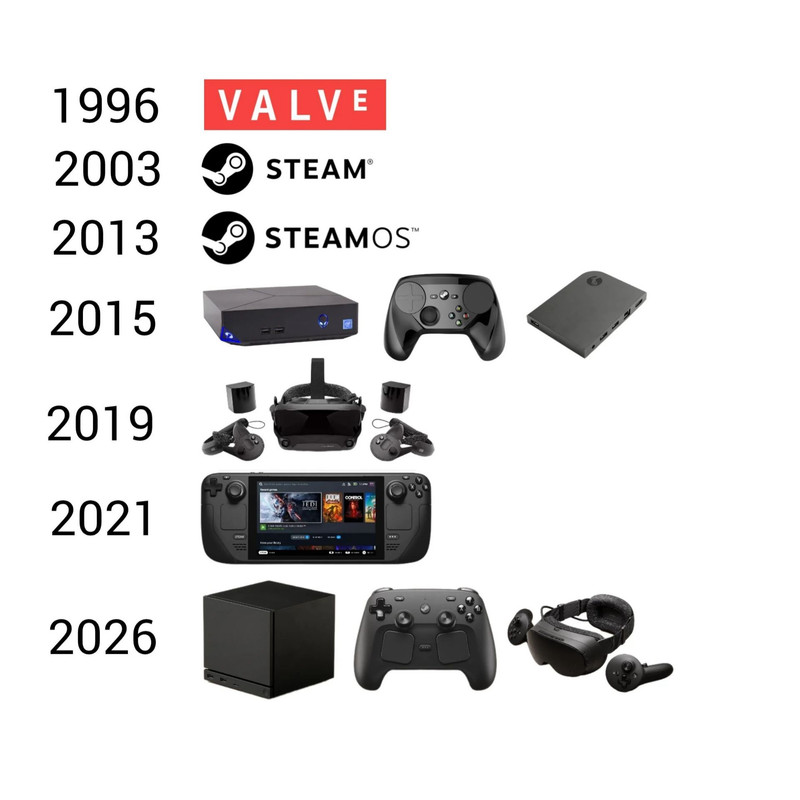Ishma3L
Member
"Gaming enthusiasts who can't wait for next-gen"
This isn't the 90's or 2000's anymore. Next-gen doesn't happen in the way I believe it is in reference to here. Also, look at the technology on display - Steam Frame? That appears to be more than just a couple of steps forward for VR headsets given the engineering achievements on display there to make that real tangible thing. Valve is very much moving the needle forward.
What's important here is the innovative and risk embracive nature of Valve's culture - in that it will sink large amounts of its capital (albeit reasonably thanks to Steam) into technology ventures that don't need to "succeed" in order to impact the industry in objectively significant ways. I mean shit, Steam Machines weren't a hardware renaissance, but Proton? Game changer.
Also, game developers want to appeal to as much of the market as possible. What is the benefit of making a game that requires only the top % of hardware requirements if even selling extremely well will only saturate a small fraction of the market that has top of the line equipment? Next-gen to me would be more about making something that looks and runs great on a variety of hardware specifications through innovation in optimization pipelines and hardware/software interfacing. I mean in that sense, isn't Valve's contribution here truly "next-gen"? Linux has never been as popular as it is now and the fact that people are even considering ditching Windows to just run exclusively on Linux nowadays is fucking huge.
Valve did the little big horn play here - they didn't come at Microsoft head on. They started a Window's based storefront that sold games and gained popularity because it's launch coincided with the launch of a sequel to one of the most important FPSs of all time. It grew into the behemoth that it is now, literally synonymous with PC gaming. It always lived within its means too. It stayed relatively small organizationally given its capital gain. Now, it does what it wants to include supporting the Linux OS. It's like a brain trust or think tank.
Maybe Astray
was right all along. I'm just a small minded man that can't see the forest for the trees.
Astray
was right all along. I'm just a small minded man that can't see the forest for the trees.
This isn't the 90's or 2000's anymore. Next-gen doesn't happen in the way I believe it is in reference to here. Also, look at the technology on display - Steam Frame? That appears to be more than just a couple of steps forward for VR headsets given the engineering achievements on display there to make that real tangible thing. Valve is very much moving the needle forward.
What's important here is the innovative and risk embracive nature of Valve's culture - in that it will sink large amounts of its capital (albeit reasonably thanks to Steam) into technology ventures that don't need to "succeed" in order to impact the industry in objectively significant ways. I mean shit, Steam Machines weren't a hardware renaissance, but Proton? Game changer.
Also, game developers want to appeal to as much of the market as possible. What is the benefit of making a game that requires only the top % of hardware requirements if even selling extremely well will only saturate a small fraction of the market that has top of the line equipment? Next-gen to me would be more about making something that looks and runs great on a variety of hardware specifications through innovation in optimization pipelines and hardware/software interfacing. I mean in that sense, isn't Valve's contribution here truly "next-gen"? Linux has never been as popular as it is now and the fact that people are even considering ditching Windows to just run exclusively on Linux nowadays is fucking huge.
Valve did the little big horn play here - they didn't come at Microsoft head on. They started a Window's based storefront that sold games and gained popularity because it's launch coincided with the launch of a sequel to one of the most important FPSs of all time. It grew into the behemoth that it is now, literally synonymous with PC gaming. It always lived within its means too. It stayed relatively small organizationally given its capital gain. Now, it does what it wants to include supporting the Linux OS. It's like a brain trust or think tank.
Maybe
Last edited:




